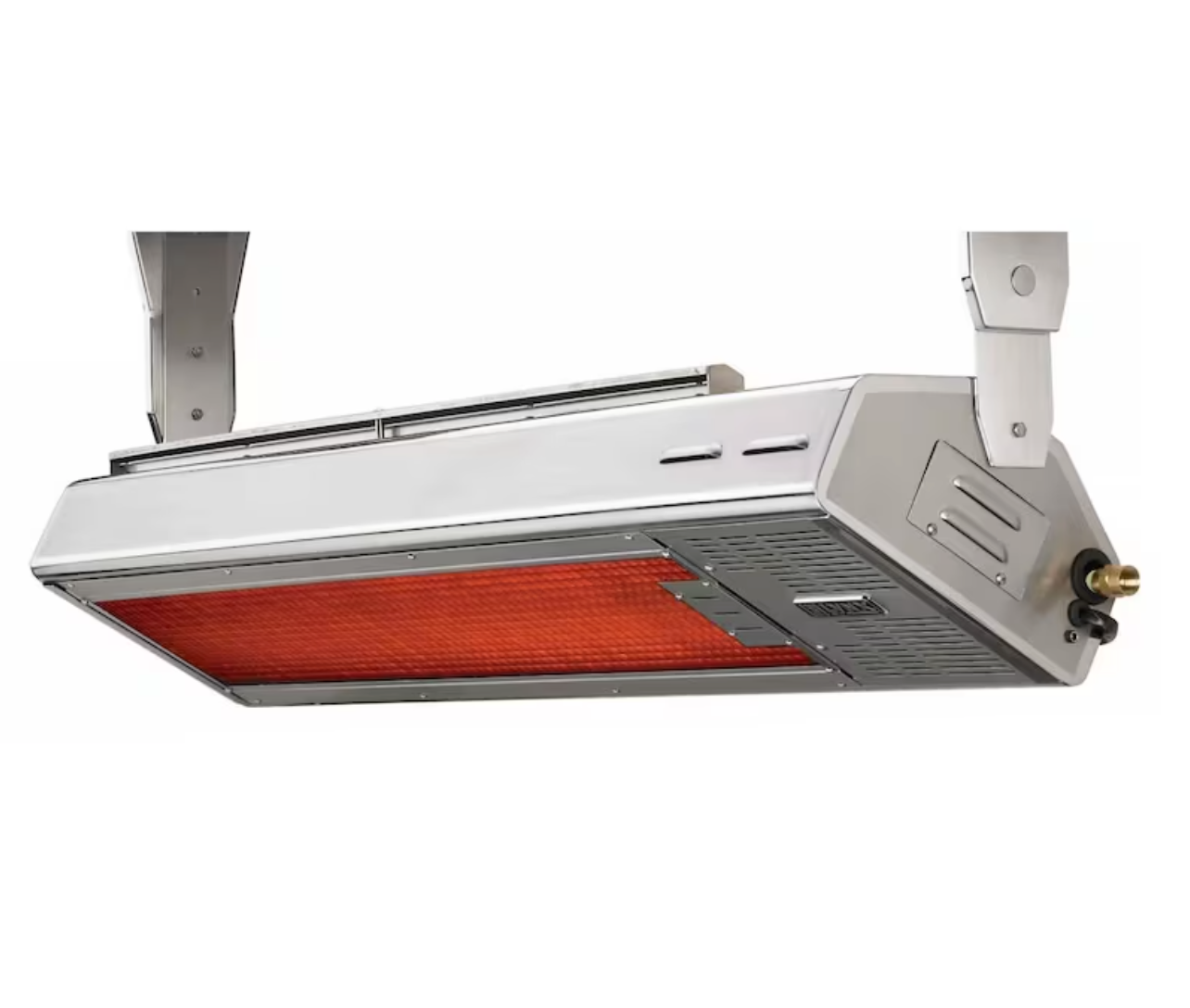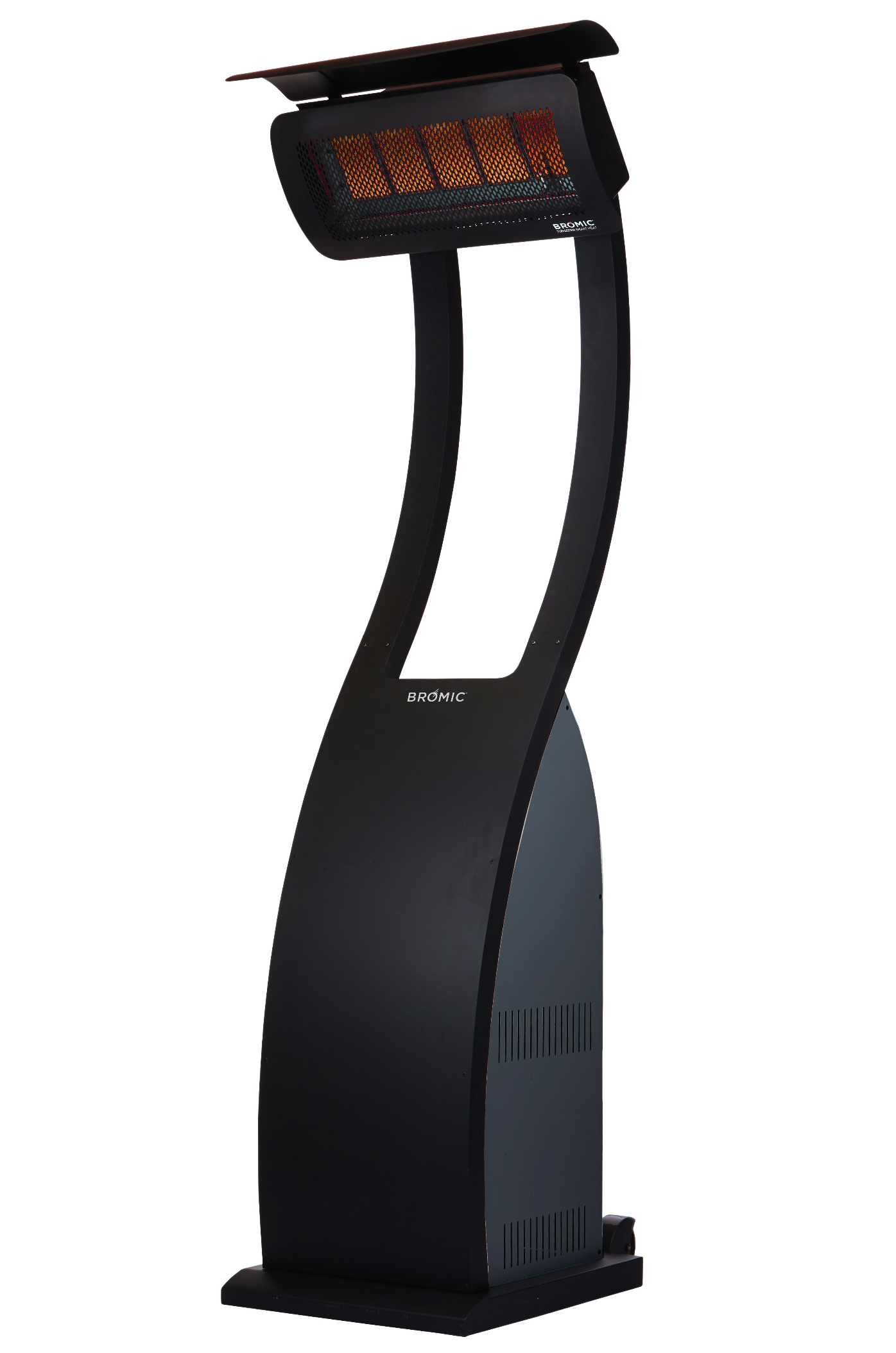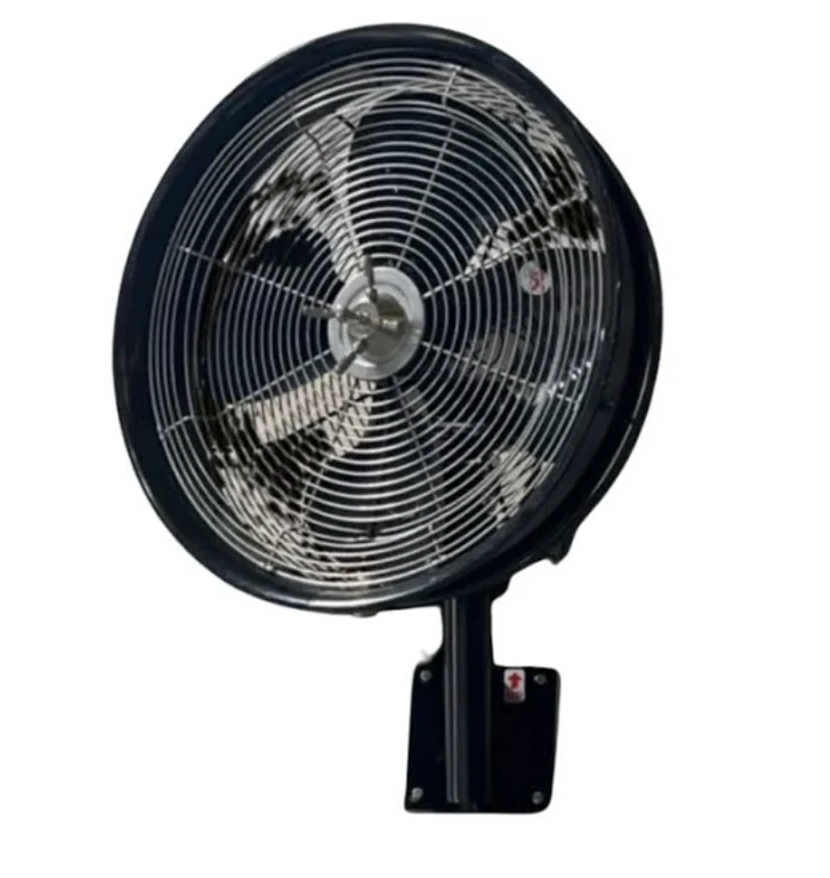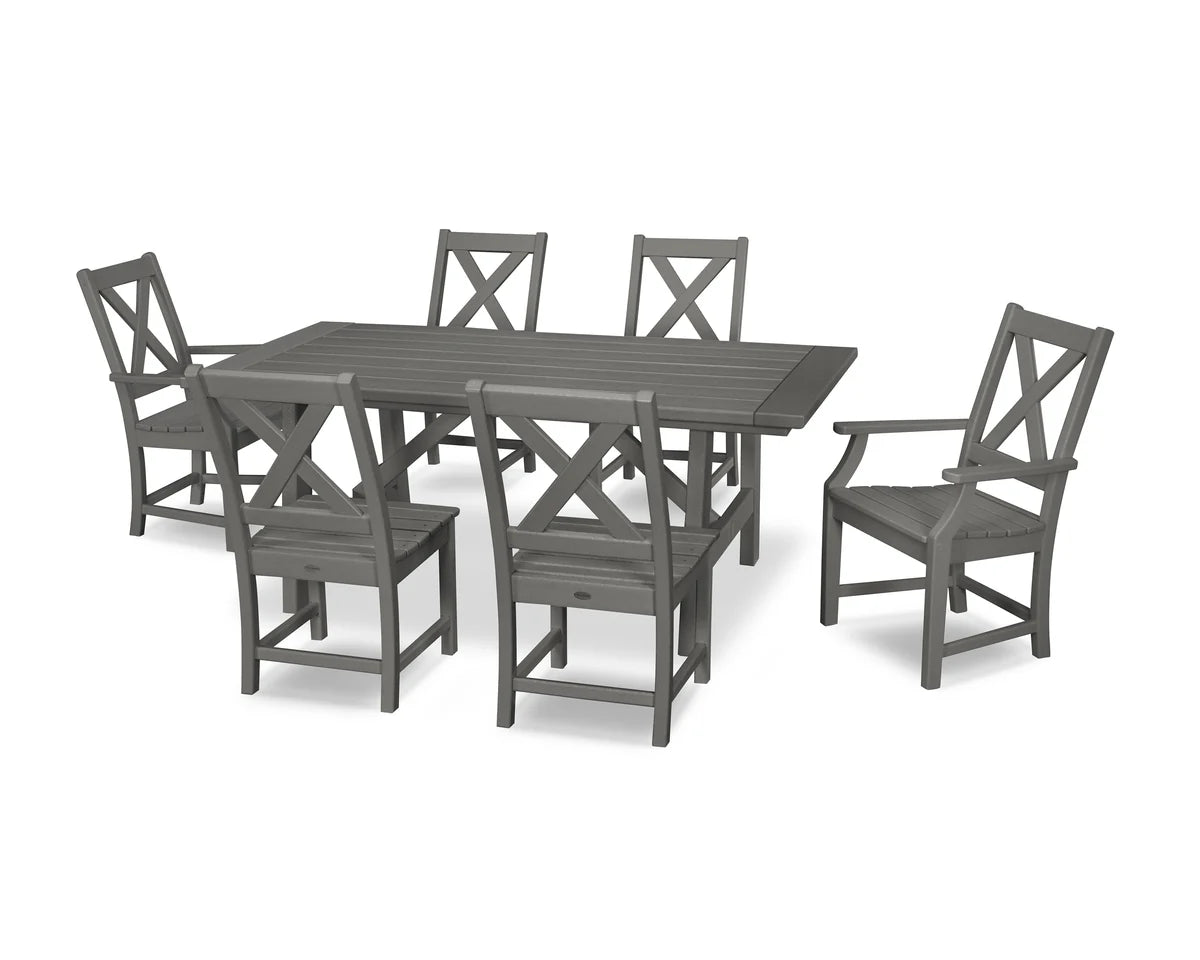Grill Master Secrets: Top Tips for Choosing the Perfect Grill or Smoker

When it comes to outdoor cooking, everyone dreams of grilling up the perfect steak or deliciously smoked ribs. But with so many options available today, how do you choose the right grill or smoker for your needs? The decision isn’t just about aesthetics or price; it’s about understanding what type of cooking experience you want to create. Whether you’re a casual weekend griller or a barbecue enthusiast ready to dive into the world of smoking meats, knowing the ins and outs of various grills and smokers can elevate your culinary adventures. So, let’s break it down and explore the different types, features, and factors that will help you make a choice you’ll be happy with for years to come.
When selecting the perfect grill or smoker, consider factors such as fuel type—whether charcoal, propane, electric, or wood pellet—as each offers unique flavors and conveniences. Additionally, prioritize a model that combines versatility for grilling and smoking with easy maintenance to enhance your overall cooking experience.
Top Grill and Smoker Types Explained
Charcoal grills are a favorite among many grill enthusiasts, celebrated for their remarkable ability to produce a deep, smoky flavor that can transform even a simple cut of meat into something extraordinary. These grills rely on charcoal briquettes as their fuel source, leading to longer cooking times but rewarding you with a rich taste. Popular options like Weber and Big Green Egg stand out in this category, known for their durability and performance. However, it’s important to note that they come with some drawbacks; cleaning up after a charcoal session can be quite labor-intensive, and maintaining an even temperature can sometimes feel like juggling flaming torches.
If you’re leaning toward convenience, gas grills might catch your interest.
Gas grills utilize propane or natural gas as their primary fuel source and have become immensely popular due to their ease of use. With brands like Napoleon and Weber leading the charge, these grills offer quick ignition and faster heating times—which means you can go from unlit to grilled in a matter of minutes. While gas grills excel in convenience and efficiency, they fall short in delivering that signature smoky flavor associated with charcoal grilling. For those who enjoy simplicity over complexity, these grills present a solid choice.
Now, let’s talk about electric smokers, which present a unique proposition altogether.
Electric smokers are designed to utilize electricity to generate both heat and smoke, making them incredibly user-friendly. Masterbuilt electric smokers have gained high praise for their precision in temperature control coupled with ease of operation—attributes especially appealing to beginners or those who appreciate hassle-free smoking experiences. However, while they shine in terms of convenience, it’s crucial to recognize that they produce a milder smoky flavor compared to wood or charcoal sources. Some purists might argue this diminishes the authenticity of the smoking experience.
For those interested in a hybrid approach, pellet grills might be the perfect match.
Pellet grills represent an innovative evolution in grilling technology by employing compressed wood pellets as fuel. Leading brands like Traeger dominate this market with models that marry precise temperature control with an exquisite smoky flavor that barbecue aficionados cherish. Despite their phenomenal performance, keep in mind that pellet grills typically command a higher price point than their counterparts and usually require access to electricity for optimal functioning—a consideration worth weighing when selecting your equipment.
As we transition to your specific cooking preferences, understanding the advantages and challenges each grill or smoker type presents will help tailor your choice to your culinary style.
Assessing Your Cooking Preferences
To truly enhance your grilling experience, it’s essential to know not only what you want to cook but how you prefer to cook it. The variety of dishes you intend to prepare can drastically influence the type of equipment that suits you best.
For example, if you love hosting summer barbecues where burgers fly off the grill in minutes, then speed and efficiency will be high on your list of priorities. A gas grill excels here with its quick heat-up time and easy temperature control, allowing you to sear juicy patties to perfection without wasting precious daylight.
Alternatively, if your culinary heart beats for deep, smoky flavors and tender meats that practically fall off the bone, you might lean toward a smoker. The low-and-slow method of cooking found with charcoal or pellet smokers allows flavors to penetrate deep into the meat while ensuring moisture retention. This technique is perfect for producing restaurant-quality ribs or brisket that can impress even the most discerning guests at your next gathering.
Recognizing these tastes helps narrow down your options, guiding you toward the right tools that align with your culinary goals.
Another angle to consider is versatility. If you enjoy experimenting in the kitchen, perhaps switching from grilling steaks one night to smoking a whole chicken the next, then combo grills might be an excellent investment for you. Devices like those offered by Napoleon provide flexibility, allowing users to sauté vegetables and slow-roast meats all in one machine. Not only do they combine functionalities, but they also adapt well to various cooking styles, catering to diverse preferences as they arise.
Don’t forget about practical aspects as well—an understanding of what you like to cook extends beyond just flavor profiles and cooking methods. Think about how often you plan to use your grill or smoker and whether ease of cleaning matters to you. Grills that are easy to maintain and have detachable parts for cleaning can save you time and effort, especially after a busy weekend of grilling.
Understanding these factors will significantly influence your decision-making process when selecting your ideal cooking companion. The journey doesn’t end here; it’s essential to further explore what performance characteristics align with your grilling ambitions.
Performance Features to Consider
Different grills come equipped with various performance features that can significantly enhance your overall grilling experience. One of the most critical aspects to consider is the BTU rating—a measure of heat output. The BTU, or British Thermal Unit, indicates how much heat a grill produces. A higher BTU means that the grill can generate more intense heat, which often leads to faster cooking times. However, while a powerful grill can be an asset, it may also lead to fuel inefficiency if certain models aren’t designed properly. It’s always a good idea to strive for a balance between heating capability and fuel consumption.
When selecting a grill, remember that greater power doesn’t always mean better cooking; observing user reviews can provide valuable insights into real-world efficiency.
Next is the cooking surface area—the larger this area, the more food you can grill at once, making it particularly advantageous for gatherings or family meals. Imagine hosting friends for a barbecue and needing to cook multiple steaks or burgers simultaneously; an insufficient cooking surface could lead to queuing while everyone waits for their turn. Be sure to measure your available outdoor space so that your new grill fits perfectly without overwhelming the surroundings.
As you weigh the importance of size, don’t overlook heat distribution. A well-designed grill should evenly distribute heat across its surface to help ensure perfectly cooked meals with no hot or cold spots. To avoid unpleasant surprises during cooking, such as burnt edges with undercooked centers, check out user reviews and expert recommendations on the models you’re considering. This feedback can guide you toward options known for consistent heat reliability.
Another important feature is thermometer accuracy. While many grills come with built-in thermometers, they may not always provide precise temperature readings. For that reason, investing in a digital meat thermometer can add significant value to your grilling toolkit by ensuring accurate temperature readings throughout the cooking process. This is essential for items like poultry and pork, where precise internal temperatures are crucial for safety.
Understanding these performance features arms you with knowledge when choosing between different grills and smokers. By focusing on BTU ratings, cooking surface area, heat distribution, and thermometer accuracy, you set yourself up for successful grilling experiences—whether you’re a beginner or a seasoned pro at BBQing. Now, let’s explore how controlled heat plays into achieving perfect results on the grill.
Heat Control and Temperature Regulation
Being able to control the heat is paramount for achieving the right cooking results. Factors like grill design and fuel type all play a role in how well you can manage temperature, allowing you to achieve perfectly cooked meats every time. Understanding these mechanisms equips you to handle any cooking challenge that comes your way.
Charcoal Grills:
With charcoal grills, ventilation is key. Adjusting the vents directly influences airflow, which regulates the temperature inside the grill. By opening the vents, you’re allowing more oxygen to feed the fire, which raises the temperature while closing them reduces airflow and cools things down.
A popular technique among grilling enthusiasts is creating a two-zone fire setup—this means having hot coals on one side of the grill for direct heat and leaving the other side cooler for indirect cooking. This method allows you to sear an amazing steak on high heat and then move it over to finish cooking without burning it.
Gas Grills:
On gas grills, controlling heat is equally straightforward but perhaps a bit more user-friendly. The burner knobs can be easily adjusted to dial in the desired temperature with precision. Additionally, multiple burners provide greater flexibility for indirect cooking; you can light one side while leaving the other off completely. This enables you to manage various cooking styles simultaneously—think slow roasting a chicken while marking those perfect grill lines on vegetables at a higher heat.
Electric Smokers:
Meanwhile, electric smokers present their own unique advantages. Equipped with digital temperature settings, these models take much of the guesswork out of grilling. You simply set your desired temperature, and they automatically maintain it for precise cooking results. This allows you more freedom to focus on preparing side dishes or setting up your plating without constantly worrying if you’re going to end up with dried-out brisket from overheating.
Pellet Grills:
Lastly, we can’t overlook pellet grills, which are celebrated for their advanced heat control features. Typically featuring digital controllers, these grills excel at maintaining a steady temperature within just a few degrees. The ability to program specific cooking temperatures makes them incredibly advantageous for longer smoking sessions; you can confidently step away, knowing your grill will maintain consistent heat while infusing delectable smoked flavor into your meats.
Understanding heat control gives you invaluable leverage over your cooking process, ensuring those backyard gatherings transform into delicious experiences that everyone will enjoy. Next, we’ll explore how construction quality plays a crucial role in your grilling adventures.
Construction Quality and Durability
When investing in a grill or smoker, it’s essential to focus on its construction quality and durability. These elements ensure that your equipment can withstand not just the weather but also the heat from countless cookouts. A well-built grill or smoker will serve you reliably and save you money in the long run by avoiding costly replacements.
One primary indicator of a grill’s or smoker’s durability is the type of materials used in its construction. High-quality options typically comprise stainless steel or cast iron. Stainless steel is favored for its rust-resistant properties, making it ideal for outdoor appliances exposed to rain and humidity. Meanwhile, cast iron offers exceptional heat retention, contributing to evenly cooked meals. Less durable materials like painted steel may look appealing at first but can chip and wear away over time, revealing a more vulnerable surface beneath.
It’s no surprise that seasoned grillers often rave about brands like Weber and Traeger. Many users have shared their positive experiences with these manufacturers, stating that their products have lasted over a decade while maintaining solid performance throughout their lifespan. Such longevity results from these companies investing heavily in high-grade materials and rigorous construction standards.
The thickness of the steel plays a crucial role in determining overall durability. Generally, high-quality grills utilize steel that measures at least 1/8 inch thick. Thicker steel improves heat retention and helps prevent warping over time—an important feature if you cook frequently.
Another aspect to consider is the grill’s finish coating, as this contributes significantly to its resistance against rust and corrosion. Powder-coated finishes can last up to ten years under normal use, providing robust protection while enhancing the overall aesthetic of your equipment.
When selecting a grill or smoker, look for premium materials such as stainless steel and cast iron, check for thickness indications (at least 1/8 inch), seek out quality coating finishes, and consider user testimonials regarding brand reliability.
As you compare different models on your journey to find the perfect grill or smoker, remember that investing in quality construction translates directly into enhanced cooking experiences that you can share with family and friends around the barbecue pit.
With construction quality and materials in mind, let’s examine how size and design elements contribute to an optimal grilling experience tailored to your unique cooking style.
Size and Design Factors
The size of your grill or smoker plays a crucial role in your overall grilling experience, impacting everything from cooking efficiency to ease of storage. It’s important to assess your cooking needs alongside the available space when making your selection. For those with limited outdoor areas or apartment balconies, opting for compact models is essential; they allow you to enjoy the joy of grilling without overwhelming your space. A perfect example would be the Weber Q series, which provides remarkable performance in a smaller package, ideal for grilling up delicious meals without feeling cramped.
Conversely, if you have a sprawling backyard or patio, embracing larger grills will cater to bigger gatherings. With models like the Napoleon Prestige series, you can enjoy multiple burners and ample cooking space for those summer barbecues where reaching out to friends and family is part of the occasion.
Remember, choosing the right size not only benefits your cooking but also enhances your outdoor aesthetics by ensuring that every piece blends harmoniously with its environment.
Now, let’s explore design considerations that enhance user functionality and comfort during use. An ergonomically designed grill can significantly improve your grilling experience. Look for features such as foldable shelves that make it easier to prepare food and monitor cooking without cluttering your workspace. Additionally, tool hooks and storage cabinets can streamline access to utensils, keeping everything organized and handy while you work.
Ergonomic Designs
Ergonomics matters greatly since spending long hours tending to barbecue should feel enjoyable, not cumbersome. Thoughtful design can lighten your workload—think about how much easier a grill can be if it minimizes excess bending or stretching to reach for tools! So, while you’re scouting for various designs, consider how these features suit your needs.
Alongside ergonomic concerns comes the aspect of mobility, which is especially relevant for those who love rearranging their outdoor settings or taking their grilling adventures on the road.
Mobility
Grills equipped with sturdy wheels provide an added level of flexibility that enhances convenience tremendously. You’ll want something that can be easily moved around your patio without breaking a sweat. It is especially handy during cleanup after a lively evening with friends when you need to tuck it safely away or shift it for better access to sunlight for smoking meats later in the day.
Understanding and deciding on size and design factors profoundly impacts not only how effectively you grill but also how much fun you have doing it. Proper planning can lead to improved culinary adventures as well as good times spent outdoors with great company.
As we transition into financial aspects related to purchasing these essential tools, it’s vital to consider how both quality and budget align in this decision-making process.
Pricing and Budget Considerations
When it comes to selecting the right grill or smoker, you’ll find that prices can vary significantly. Basic charcoal grills might be as inexpensive as $50, while top-of-the-line pellet models can soar beyond $1,500. This wide range means it’s vital to assess your budget early in the process to ensure you make a suitable choice that meets both your needs and your wallet’s limitations.
If you’re new to grilling and looking to save money, consider mid-range models priced between $300 and $700. These often strike the perfect balance between cost and performance, delivering a great cooking experience without breaking the bank. A savvy approach is to keep an eye out for seasonal sales or special bundles, as these opportunities can significantly reduce costs while still providing quality equipment.
Many experienced grillers argue that investing in premium models pays off in the long run. Such grills typically offer improved durability, superior materials, and enhanced performance features like better temperature control or innovative designs. Casual grill enthusiasts may find that mid-range options suffice for their occasional cookouts and family gatherings. Ultimately, assessing how often you’ll use your grill will guide your decision; if you’re just grilling on weekends, a mid-range model may be all you need.
|
Type of Grill |
Price Range |
Example Brand |
|
Charcoal Grill |
$50 - $500 |
Weber, Big Green Egg |
|
Gas Grill |
$100 - $1,200 |
Napoleon |
|
Electric Smoker |
$200 - $500 |
Masterbuilt |
|
Pellet Grill |
$400 - $1,500 |
Traeger |
As you explore these options, bear in mind some additional key factors while budgeting for your new grilling companion. Fuel types—whether charcoal, propane, or electric—will influence ongoing costs and prep time. Understanding these aspects will better prepare you for the overall maintenance of your smoking or grilling venture as you move toward finalizing your choice.
Making Your Final Decision
With all factors considered, how do you make your final decision? Choosing a grill or smoker is not just about aesthetics or the latest technology; it’s about finding the right fit for your cooking style and lifestyle.
After sifting through possibilities, think of what specific outcomes you desire from your grill. For instance, are you hosting weekend barbecues for family and friends? Do you envision yourself experimenting with different smoking techniques? Understanding your personal goals can lend clarity to your choice.
From there, consider which grill aligns best with your specific grilling ambitions, available space, necessary features, and budget constraints. Imagine where you’ll place it—is it going on a small balcony or a spacious backyard patio?
Also, think about the cooking techniques you want to master; for example, if smoking is paramount for you, a dedicated smoker may be more beneficial.
User Insights
Across various grilling forums, many enthusiastic users express the significance of making an informed choice. They often note how their decisions have dramatically enhanced their cooking experiences.
One user mentioned that opting for a well-reviewed gas grill made weeknight dinners seamless and stress-free, while others found joy in sharing smoked ribs with friends after investing in a quality pellet smoker.
To aid in your decision-making process even further, we invite you to explore our website, bbqoutfitters.com. There, you will find exclusive offers on top-rated grills and smokers, along with detailed product descriptions and features tailored to meet every griller’s needs. Our expert team is always ready to provide personalized guidance to help elevate your grilling experience.
In choosing the right grill or smoker, consider both your present needs and future aspirations. A well-thought-out purchase not only enhances your cooking experience but also makes memorable moments with friends and family more special.
Frequently Asked Questions
What features should I look for when choosing a high-quality grill or smoker?
When choosing a high-quality grill or smoker, you should look for durable construction materials such as stainless steel or heavy-duty cast iron, efficient heat distribution systems, and versatile cooking options (grilling, smoking, and searing). Additionally, features like adjustable air vents for temperature control and easy cleanup mechanisms can enhance your grilling experience. According to recent surveys, 75% of grilling enthusiasts prefer models with precise temperature gauges and side burners for multitasking, which highlights the value of versatility in outdoor cooking.
What maintenance tips should I follow to ensure my grill or smoker lasts longer?
To ensure your grill or smoker lasts longer, make sure to clean it after each use by removing grease and debris, as 60% of grill fires are caused by built-up grease. Regularly check and replace any worn-out parts, such as the burner or gaskets, which can improve efficiency and safety. Additionally, season your grill grates to prevent rusting and maintain a non-stick surface. Investing a little time in maintenance can extend your equipment’s lifespan significantly, often exceeding ten years, with proper care.
How does the type of fuel affect the flavor of the food cooked on a grill or smoker?
The type of fuel used significantly impacts the flavor profile of the food, as different fuels impart unique characteristics to the smoke and heat during cooking. For instance, hardwoods like hickory and mesquite provide stronger, more robust flavors compared to lighter woods such as apple or cherry, which offer milder, sweeter notes. According to a survey, 65% of grill masters believe that using charcoal enhances the smoky flavor of meats more than gas grilling does, making it essential to choose the right fuel based on your desired taste outcome.
How do I determine the right size smoker for my cooking needs?
To determine the right size smoker for your cooking needs, consider how many people you typically cook for and the types of food you’ll be preparing. A good rule of thumb is to allow for about 1 pound of meat per person; for instance, if you’re feeding a crowd of 6-8 people, a smoker with at least 20-30 inches of cooking space will suffice. Additionally, check specific sizes based on your favorite cuts—briskets and whole chickens require more room than steaks or ribs. Remember that a larger smoker can accommodate more food but may lead to inconsistent cooking if not filled properly, so choose according to your average gatherings.
What are the main differences between gas grills and charcoal grills?
Gas grills provide convenience and quicker heat-up times, taking only about 10-15 minutes to reach cooking temperatures, while charcoal grills can take 20-30 minutes. Charcoal grills typically offer a more robust flavor due to the smoke from burning charcoal, which many grilling enthusiasts prefer. According to a survey, around 55% of grillers favor the taste of food cooked on charcoal over gas. However, gas grills produce lower emissions and offer precise temperature control, making them appealing to those who prioritize efficiency and ease in their grilling experience.
What is the best type of grill or smoker for beginners?
For beginners, the best options often include electric grills, pellet grills, and gas grills. Electric grills are incredibly user-friendly and require minimal setup, making them ideal for those who want to start grilling without the hassle of managing charcoal or wood. Pellet grills, which use wood pellets as fuel, offer a great balance between convenience and flavor; they allow for precise temperature control and can be used for both grilling and smoking. Gas grills are also popular among beginners because they heat up quickly and are easy to operate. Ultimately, the best choice depends on personal preferences regarding taste, convenience, and cooking style.
Can I use a grill as a smoker?
Yes, you can use a traditional grill as a smoker with some adjustments! To convert your grill into a smoker, utilize indirect heat by placing coals on one side of the grill while leaving the other side empty for cooking. Add soaked wood chips in a foil pouch or directly on hot coals to produce smoke without burning too quickly. Maintain low temperatures (ideally between 225°F to 250°F or about 107°C to 121°C) by adjusting vents and keeping an eye on your thermometer. This method allows you to achieve deliciously smoked meats without investing in a dedicated smoker.
Ready to Fire Up? Find the Perfect Grill for Your Backyard Feast
Selecting the perfect grill or smoker is an exciting journey that combines personal tastes, cooking ambitions, and outdoor lifestyle. At BBQ Outfitters, we’re here to equip you with the essentials—from top-quality grills and smokers to the finest accessories—ensuring you have everything you need to create unforgettable meals. Whether you’re searing delicate cuts of meat or perfecting the art of slow smoking, our curated selection and expert guidance will make every barbecue a success. Explore our website today to discover your next grilling companion and start turning your backyard into a flavorful haven for family and friends!











